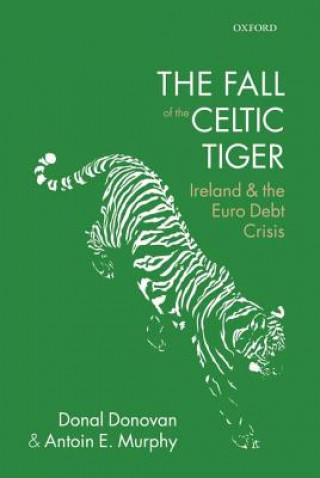
Code: 02616841
Fall of the Celtic Tiger
by Donal Donovan
By 2000, Ireland had achieved a remarkable macroeconomic performance producing 10% economic growth, a budget surplus, and a very low debt to GDP ratio. Emigration had disappeared and there was significant immigration from Eastern ... more
- Language:
 English
English - Binding: Paperback
- Number of pages: 352
Publisher: Oxford University Press, 2014
- More about this

You might also like
-

The Secret History
10.66 € -17 % -

Dune Messiah
9.96 € -25 % -

Glute Lab
54.36 € -5 % -

Normal People
24.66 € -4 % -

Magical Tarot of the Golden Dawn
40.46 € -19 % -

How Brands Grow
36.54 € -

Atlas of World History
42.07 € -24 % -

The Dream Thieves
10.76 € -9 % -

Five Nights at Freddy's: Tales from the Pizzaplex
13.88 € -

Lore Olympus: Volume Three
16.50 € -19 % -

Ocean at the End of the Lane
10.86 € -26 % -

Book of Night
14.49 € -20 % -

Godzilla
29.59 € -16 % -

Renoir. 40th Ed.
25.76 € -

Concise Oxford English Dictionary
22.74 € -35 % -

Willpower
12.17 € -22 % -

Crypto Profit: Your Expert Guide to Financial Freedom through Cryptocurrency Investing
10.96 € -1 % -

Little Children's Activity Book mazes, puzzles and colouring
7.34 € -27 % -

Noise
18.11 € -13 % -

New Nordic Houses
39.15 € -11 % -

Peter Rabbit: Christmas is Coming
15.29 € -27 % -

Age of Surveillance Capitalism
30.39 € -21 % -

We Are Totally Normal
9.05 € -20 % -

Lapvona
16.10 € -21 % -

Pantone: 35 Inspirational Color Palettes
16 € -4 % -

Editions de Parfums Frederic Malle
60.50 € -18 % -

HBR 20-Minute Manager Boxed Set (10 Books) (HBR 20-Minute Manager Series)
90.30 € -17 % -

Celtic Tiger in Collapse
61.30 € -

Nickelodeon Blue's Clues & You!: Play & Sing with Blue! Sound Book
19.12 € -16 % -
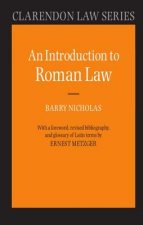
Introduction to Roman Law
66.24 € -

Steampunk Lego
24.25 € -21 % -

Bee
9.45 € -18 % -

Economy of Ireland
9.15 € -2 % -

Brother's Best Friend
10.86 € -7 % -

Intermedialität im Werk von Gregory Crewdson
31.10 € -9 % -

La sustracción internacional de menores: el retorno del menor en el ámbito del C
12.88 € -10 % -

UN AVIÓN EN LA CASTELLANA
12.47 € -10 % -

Burning Bright: A comedy about money, fame and the Celtic Tiger
17.71 € -1 % -

Rise and Fall of Ireland's Celtic Tiger
34.22 € -

Inside the Celtic Tiger
35.93 € -9 % -

Bengal Tiger, Celtic Tiger
144.96 € -

Form, Affect and Debt in Post-Celtic Tiger Irish Fiction
145.77 €
Give this book as a present today
- Order book and choose Gift Order.
- We will send you book gift voucher at once. You can give it out to anyone.
- Book will be send to donee, nothing more to care about.
More about Fall of the Celtic Tiger
You get 143 loyalty points
 Book synopsis
Book synopsis
By 2000, Ireland had achieved a remarkable macroeconomic performance producing 10% economic growth, a budget surplus, and a very low debt to GDP ratio. Emigration had disappeared and there was significant immigration from Eastern Europe. By November 2010, economic growth was significantly negative, the budget deficit was out of control and the debt to GDP ratio had risen to over 100%. In an unprecedented development, Ireland was forced to apply for an emergency bail-out package from the Troika (European Commission, European Central Bank, and the International Monetary Fund). This book examines how the Celtic Tiger, a high growth performing economy, fell into a macroeconomic abyss. It is a story that shows how the Irish economy moved from a property market crisis to a banking crisis and fiscal crisis, and how these three crises produced a fourth crisis, the massive financial crisis of 2010. Against the backdrop of the newly created Eurozone, the book demonstrates the way in which a housing boom was transformed into a property market bubble through excessive credit creation. Accompanying the property market bubble buoyant property related taxes enabled a profligate government to over spend and under tax. Few, both in Ireland or Europe, recognised the danger signals because the prevailing economic ideology suggested that financial markets could self-regulate. The book analyses the roles of banks, builders, developers, regulators (the EU, the ECB, the Central Bank of Ireland, and the Irish Financial Regulator), economists, the media, and a property driven populace during the various unfolding stages of the downfall of the Celtic Tiger. It pays particular attention to the decisions to provide a highly controversial comprehensive guarantee for the covered Irish banks and the events that left the government with no alternative but to request a bail out. It considers throughout two questions: who or what was responsible for what happened and in what sense? Could actions have been taken at various stages to prevent the final recourse to the bail out? Finally, the book addresses the future of the Celtic Tiger and discusses the impact of measures to help resolve the current Euro debt crisis as well as the underlying lessons to be learned from this traumatic period in Ireland's economic and financial history.
 Book details
Book details
Book category Books in English Economics, finance, business & management Economics Macroeconomics
56.97 €
- Full title: Fall of the Celtic Tiger
- Author: Donal Donovan
- Language:
 English
English - Binding: Paperback
- Number of pages: 352
- EAN: 9780198719960
- ISBN: 0198719965
- ID: 02616841
- Publisher: Oxford University Press
- Weight: 512 g
- Dimensions: 233 × 152 × 19 mm
- Date of publishing: 10. July 2014
Trending among others
-
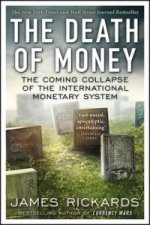
Death of Money
11.27 € -28 % -
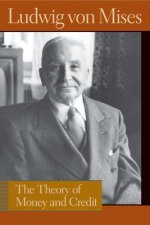
Theory of Money & Credit
14.99 € -4 % -

Macroeconomics, Global Edition
89.89 € -
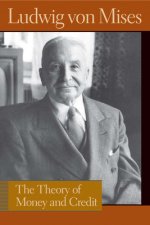
Theory of Money & Credit
25.36 € -

Blockchain Revolution
10.56 € -26 % -

Digital Gold
10.96 € -23 % -

Economics: A Very Short Introduction
9.25 € -28 % -

Macroeconomics, Global Edition
84.05 € -9 % -
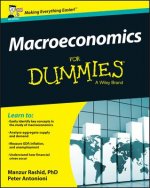
Macroeconomics For Dummies - UK
17.21 € -24 % -
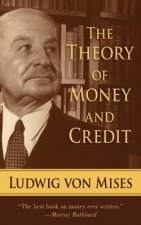
Theory of Money and Credit
11.97 € -25 % -
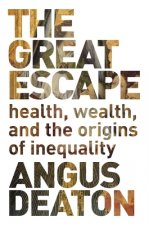
Great Escape
17.51 € -11 % -
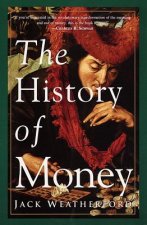
History of Money
12.78 € -20 % -

All About Forex Trading
17.71 € -22 % -

Business Cycles
13.28 € -15 % -
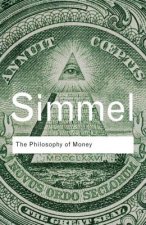
Philosophy of Money
24.15 € -14 % -

Cartoon Introduction to Economics Vol 2
16.50 € -21 % -

Manias, Panics, and Crashes
32.61 € -15 % -

Natural Resource and Environmental Economics
99.76 € -

End of Money
13.48 € -21 % -

Order Flow Analyses and Foreign Exchange Dealing
45.50 € -

Macroeconomics
76.71 € -

When Money Destroys Nations
13.78 € -
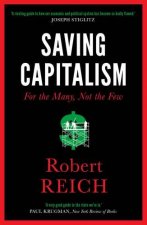
Saving Capitalism
10.26 € -28 % -
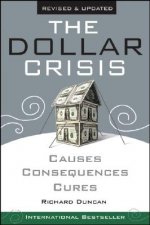
Dollar Crisis, Causes, Consequence, Cures Revised and Updated edition
28.78 € -18 % -
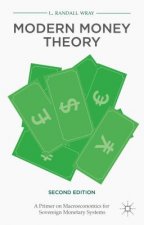
Modern Money Theory
96.94 € -12 % -

Euro Area and the Financial Crisis
58.28 € -7 % -

Basics of Foreign Exchange Markets: A Monetary Systems Approach
10.86 € -52 % -

Techniques for Evaluating the Differences in Multiregional Input-Output Databases
129.96 € -2 % -
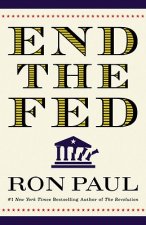
End The Fed
15.70 € -25 % -

Cryptocurrency
12.17 € -22 % -

Advanced Macroeconomics
122.51 € -

History of Money
55.76 € -
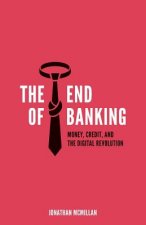
End of Banking
18.72 € -10 % -

Macroeconomics
94.42 € -3 % -
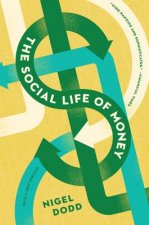
Social Life of Money
27.78 € -6 % -

Micromotives and Macrobehaviour
12.57 € -34 % -

Program for Monetary Stability
13.38 € -

Golden Fetters
75.30 € -

Why Most Things Fail
13.28 € -28 % -

Monetary Theory and the Trade Cycle
15.80 € -

European Policies for a Knowledge Economy
47.51 € -10 % -
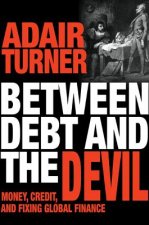
Between Debt and the Devil
18.72 € -10 % -

Concise Guide to Macroeconomics, Second Edition
29.59 € -16 % -
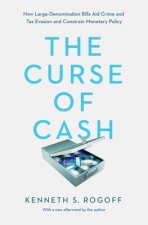
Curse of Cash
21.13 € -

International Macroeconomics
99.76 € -
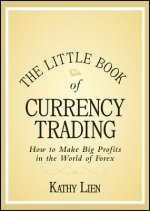
Little Book of Currency Trading
21.13 € -28 % -

How to Build a GPU Mining Rig to Mine Bitcoin, Monero, Ether, Zcash, and other Cryptocurrenices
15.19 € -15 % -

Contours of the World Economy 1-2030 AD
70.46 € -4 % -

Business Cycles
14.49 € -7 %
Collection points Bratislava a 2642 dalších
Copyright ©2008-24 najlacnejsie-knihy.sk All rights reservedPrivacyCookies



 15549 collection points
15549 collection points Delivery 2.99 €
Delivery 2.99 € 02/210 210 99 (8-15.30h)
02/210 210 99 (8-15.30h)